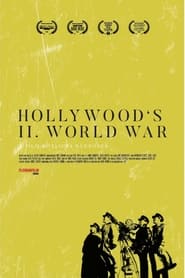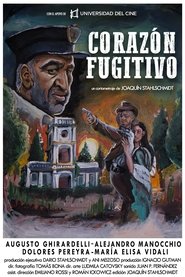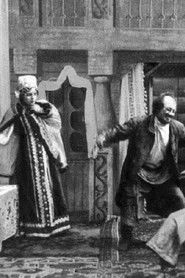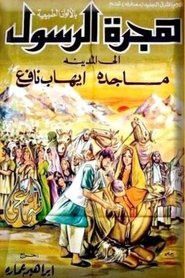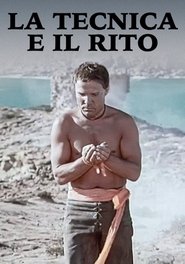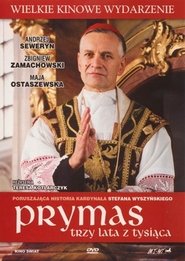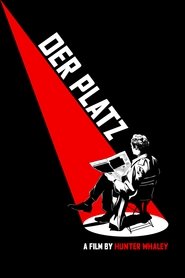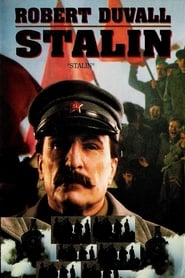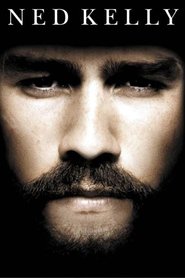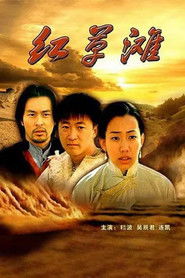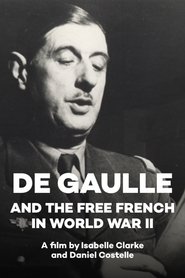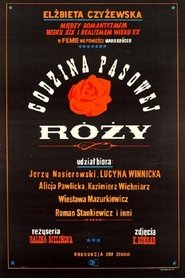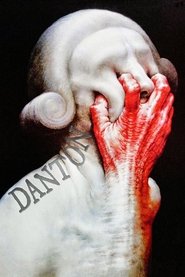Popular History Movies - Page 278
-
Hollywood's Second World War
2019
star 8For the USA, World War 2 was an all-out war - to mobilize the masses, the US government launched a huge propaganda campaign and cinema, the medium of the masses, was quite simply their most important weapon. Government authorities monitored the production of feature films and the military itself produced documentaries aimed at rallying the American people to support the troops. This film tells the story of four Hollywood directors of European origin, who returned to the "Old World" during the Second World War to make propaganda documentaries for the US Army at the front: William Wyler from Alsace, Frank Capra from Italy, Anatole Litvak from Ukraine and - in post-war Germany - Billy Wilder from Austria. -
Runaway Heart
2023
Runaway Heart
2023
star 10Juan, a young rural bandit, is in a relationship with a lady who is wanted by the aggressive town commissioner. He must solve his problems with the law, even if it costs him to lose love. Based on the story of Juan Bautista Vairoletto, 'The Argentinian Robin Hood'. -
Boyar Orsha
1910
Boyar Orsha
1910
star 6Based on Lermontov's poem of the same name, Boyar Orsha (Peter Chardynin) leaves the service of Ivan the Terrible. -
Udon and Choonhyang
2019
-
Band of Ninja Pilot
1969
Band of Ninja Pilot
1969
An animated pilot film for Band of Ninja released to the public over three decades later on The Legend of Ninja Kamui DVD volume 7. The pilot film was created in 1969 as director Nagisa Ōshima was wanting to make a TV animation to build off his controversial film from 1967. The pilot was rejected by Shirato himself (the original comic creator the film was based on) and the plan was changed to animate Kamui Gaiden instead, a side story to the Kamui manga also created by Shirato. Though with this change, Ōshima did not partake in The Legend of Ninja Kamui's production. -
The Greenie
1942
The Greenie
1942
Told on the premise that the United States has always been a refuge from those seeking a reprieve from poverty and bigotry, this Miniature short from M-G-M is the story of a young Polish boy, unable to speak English, just arriving in New York City with hie parents. He leaves his lower east-side tenement to go play. Passing an open field he sees a sight unfamiliar to him; a group of boys playing baseball. When the boys drop their bats and gloves to hitch a ride on a passing ice-wagon, the Polish boy goes over to the baseball diamond and starts examining the baseball equipment. The boys come back and think he is about to steal their belongings but, when they learn he is a new immigrant and doesn't understand English, they invite him to play base ball with them..and he gets a base-hit his first time at bat. -
The Prophet's Immigration
1964
In the period before Prophet Muhammad's call, events revolve around the dancer Sarah who earns from the money of the pagan pilgrims and both slaves Faris and Habiba, who are subjected to harsh treatment by their masters. Faris and Habiba decide to defend the Prophet and invite him. -
Atomic Journeys: Welcome to Ground Zero
2000
star 7.1Through the use of spectacular, never-before-seen nuclear test footage, travels to ten former testing sites and explores the history, physical changes resulting from the tests and current condition of these amazing and important places. Visit the notorious Nevada Test Site, known as the most bombed place on earth. Over 900 nuclear explosions where detonated at this location – an area larger than the State of Rhode Island. Once upon a time these locations were kept top secret, but today, with this 60th Anniversary Diamond Edition of Atomic Journeys: Welcome to Ground Zero, you will finally see these historic hot spots. Preserving the incredible legacy of America’s nuclear testing program stands as a reminder of the fine line between the progress of mankind and the destruction of the earth. Once you understand what really happened at the Ground Zero nuclear testing sites, you will never be the same. -
The Technique and the Rite
1972
star 5The narrative concerns the barbaric exploits of Attila The Hun and yet none of the characters ever leave the remote seaside stretch of land on which the film is set or do much of anything – with the ensuing moralizing interrupted only by the occasional (and equally obscure) music-infused rites. -
Oltre il fiume
2019
Oltre il fiume
2019
-
Prymas. Trzy lata z tysiąca
2000
star 6Cardinal Stefan Wyszyński is secretly abducted from the Primate’s Palace and sent into solitary confinement at Stoczek Warmiński, accompanied by Father Stanisław, recently freed from Rawicz, and Sister Leonia, coerced from Grudziądz, forming an unlikely retinue in his enforced exile. As state spies and the camp commandant conspire to break the Primate’s resolve, Father Stanisław risks everything to smuggle word of Wyszyński’s whereabouts to the outside, hoping to foil the regime’s darkest “third variant.” -
Der Platz
2021
Der Platz
2021
Stranded in Cold War-era Berlin, a British counterintelligence officer awaits the day his handlers will finally arrive to collect him. Given no information but a time and place, he diligently keeps his appointment, watching and waiting for something to happen; even as weeks turn to years . . . -
Stalin
1992
Stalin
1992
star 5.1The life and career of the brutal Soviet dictator, Josef Stalin. Through the eyes and memories of Anna Aliluyeva, Stalin’s granddaughter, the film traces the rise of the Bolshevik tyrant from Lenin’s return from exile to his brutal struggle with Trotsky, the creation of his feared secret police and the merciless inner workings of his regime. As Anna recounts her grandfather’s life, viewers gain an intimate, personal perspective on the paranoia and purges that left even his closest circles living in constant fear. -
Ned Kelly
2003
Ned Kelly
2003
star 6.1After getting threatened by Kelly's friends and family, Constable Fitzpatrick places the blame on Ned Kelly and exaggerates what happened. With the biggest ever award available, Kelly and his gang set into the wild, to remain hidden from everyone who seeks them. Even if it means having his family arrested, the members of the Kelly Gang stay hidden and plan a way to get their names cleared. -
红草滩
2000
红草滩
2000
-
Straight from the Streets
2000
star 6.5Straight From The Streets is a unique mosaic of inner city culture and politics that goes where no other film has dared! -
De Gaulle and the Free French in World War II
2010
In June 1940 nothing was written. The appeal of June 18 by General de Gaulle was a hope but also a start. The start for an essential page of the History of France, written by De Gaulle and his followers, without whom nothing would have existed in the Resistance to the German tyranny and this film wishes to honor their memory. -
Godzina pąsowej róży
1963
-
Vivo o muerto: El expediente García
2024
star 8.3Amidst the uncertainty caused by the alleged suicide of former president Alan García, journalist Carmen Ríos initiates an intense search aiming to unravel the mystery surrounding the case and answer the pressing question still lingering in the minds of all of Peru: Is Alan García alive or dead? -
Danton
1983
Danton
1983
star 6.8Danton and Robespierre were close friends and fought together in the French Revolution, but by 1793 Robespierre was France's ruler, determined to wipe out opposition with a series of mass executions that became known as the Reign of Terror. Danton, well known as a spokesman of the people, had been living in relative solitude in the French countryside, but he returned to Paris to challenge Robespierre's violent rule and call for the people to demand their rights. Robespierre, however, could not accept such a challenge, even from a friend and colleague, and he blocked out a plan for the capture and execution of Danton and his allies.
 Netflix
Netflix
 Amazon Prime Video
Amazon Prime Video
 Apple iTunes
Apple iTunes
 Apple TV Plus
Apple TV Plus
 Disney Plus
Disney Plus
 Google Play Movies
Google Play Movies
 Paramount Plus
Paramount Plus
 Hulu
Hulu
 HBO Max
HBO Max
 YouTube
YouTube
 fuboTV
fuboTV
 Peacock
Peacock
 Peacock Premium
Peacock Premium
 Amazon Video
Amazon Video
 The Roku Channel
The Roku Channel
 AMC+
AMC+
 Kocowa
Kocowa
 Hoopla
Hoopla
 The CW
The CW
 Vudu
Vudu
 Starz
Starz
 Showtime
Showtime
 PBS
PBS
 Pantaflix
Pantaflix
 FXNow
FXNow
 Tubi TV
Tubi TV
 Kanopy
Kanopy
 Comedy Central
Comedy Central
 Crunchyroll
Crunchyroll
 Microsoft Store
Microsoft Store
 Redbox
Redbox
 Sun Nxt
Sun Nxt
 ABC
ABC
 DIRECTV
DIRECTV
 Crackle
Crackle
 Fandor
Fandor
 Plex
Plex
